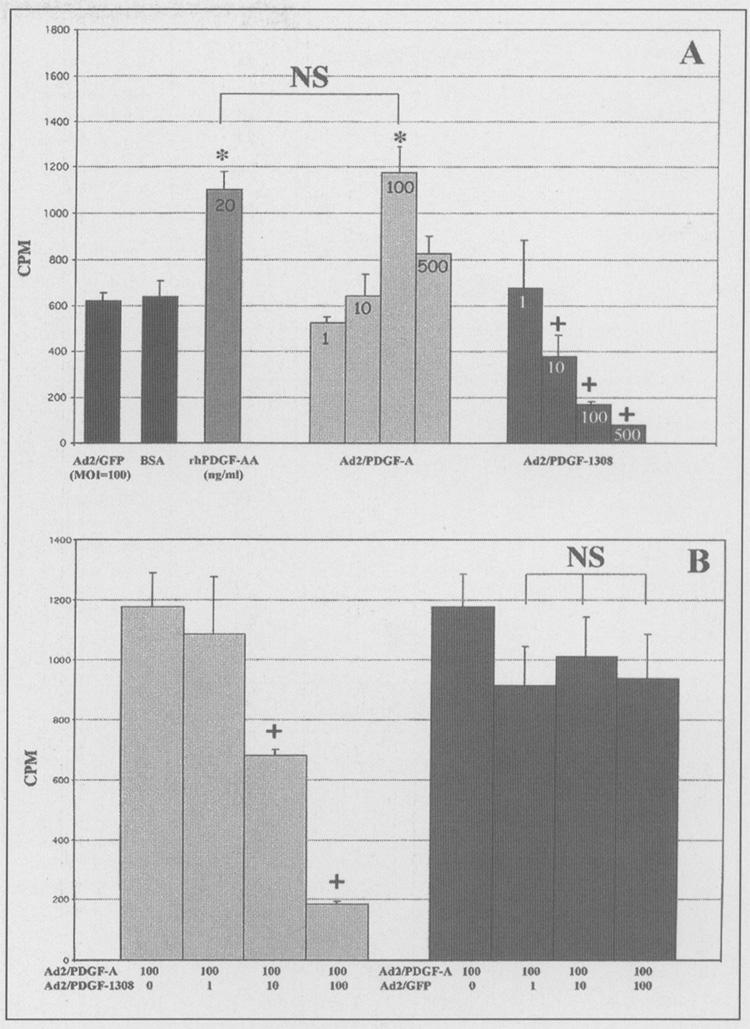Figure 3.
Recombinant adenoviruses encoding platelet-derived growth factors modulate DNA synthesis in vitro. (A) BALB/c 3T3 fibroblasts were plated at a density of 2500 cells/well in 96-well plates. After 5 days quiescent cells were treated with either 1% BSA (control), Ad2/GFP (control reporter virus), rhPDGF-AA (20 ng/mL), Ad2/PDGF-A, or Ad2/PDGF- 1308. Data are plotted as counts per minute (CPM) vs. treatment group. Note statistically significant (p < 0.01) stimulation of DNA synthesis above controls with rhPDGF-AA and Ad2/PDGF-A at MOI = 10 and 100. No significant difference was found between rhPDGF-AA and Ad2/PDGF-A at MOI = 10 and 100. A significant reduction in [3H]thymidine uptake was found when Ad2/PDGF-A MOI = 500 was used. A dose response in inhibition of DNA synthesis was noted as MOI increased from 1 to 100 when the dominant-negative mutant (PDGF-1308) was used (p < 0.01). (B) PDGF-1308 reverses the effects of Ad2/PDGF-A on DNA synthesis when Ad2/PDGF-1308 and Ad2/PDGF-A are co-infected in BALB/c 3T3 cells (p < 0.01). No significant reversal of Ad2/PDGF-A mitogenic stimulation was noted with Ad2/GFP (MOI = 1–100). NS (not significant); *p < 0.01 (significant increase vs. Ad2/GFP); +p < 0.01 (significant decrease vs. Ad2/PDGF-A [MOI = 100] and Ad2/GFP). N = 10 for each of 3 separate experiments in panel A; N = 5 for 2 separate experiments in panel B. Bars represent ± the standard deviation.

